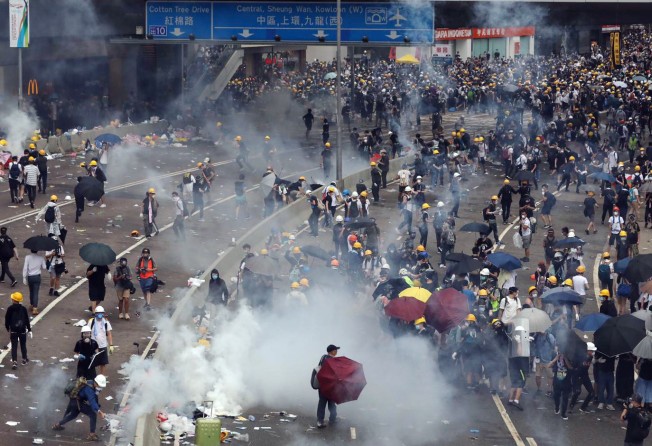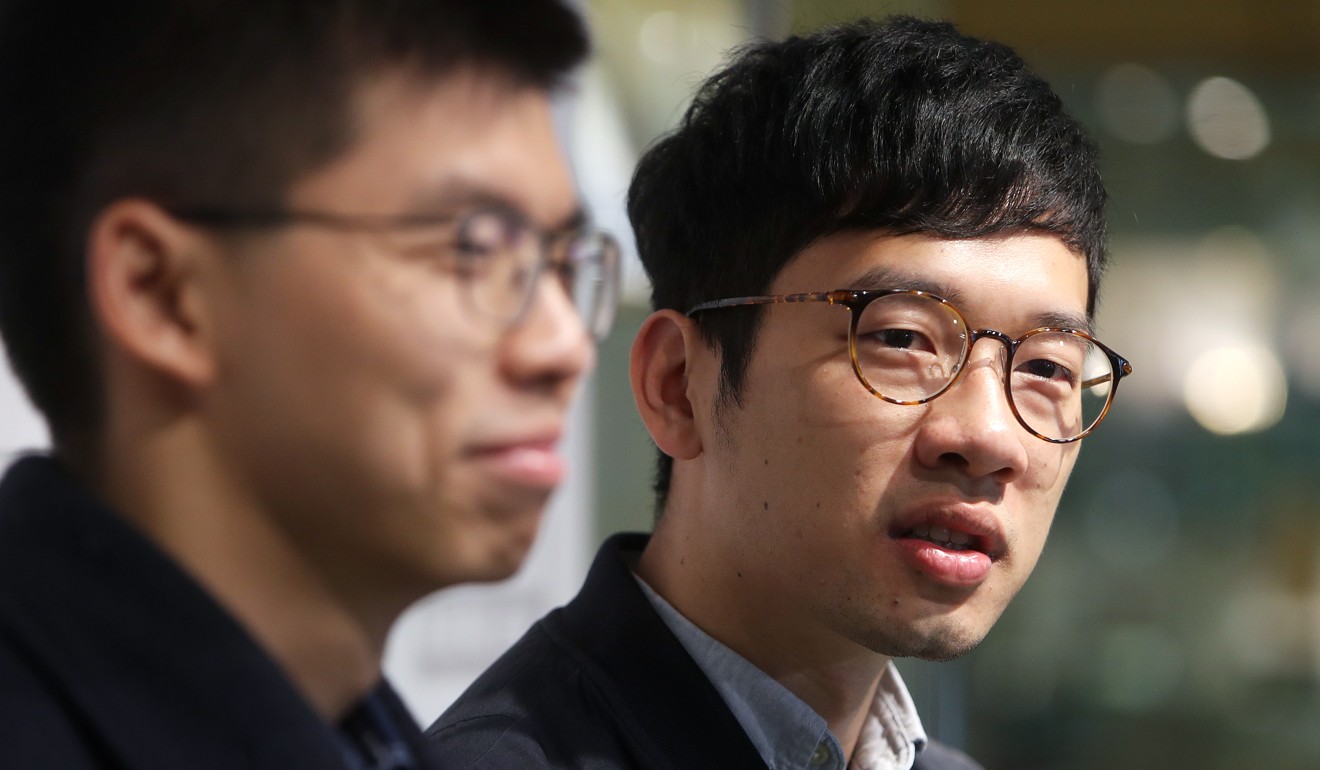Student leaders snub Hong Kong leader Carrie Lam’s ‘insincere’ second offer for meeting
- Representatives from eight tertiary institutions vow not to meet city leader until she promises to exonerate those arrested during extradition bill protests
- Lam says it would be against rule of law to grant amnesty ‘at this stage’, with investigations still ongoing and prosecutions not undertaken

Student leaders have snubbed a new offer from Hong Kong leader Carrie Lam Cheng Yuet-ngor to meet for an open dialogue, continuing to insist she address several conditions first.
It was the students’ second rejection of Lam, who first invited them to a closed-door meeting last Friday.
Students from eight tertiary institutions said on Tuesday they would not meet the chief executive, who made the renewed offer earlier in the day, unless she promised to exonerate all demonstrators arrested during the recent extradition bill protests.
The second invitation came as Lam also announced the unpopular bill was “dead” and vowed to revamp the Youth Development Commission.
At a press briefing before a weekly meeting with her advisers in the Executive Council, Lam said she had tried to set up a private meeting with student representatives from the Hong Kong University of Science and Technology (HKUST) and Chinese University (CUHK) via their respective heads last week.
“I realise this idea is not welcome by student unions, they instead made a counterproposal that we should have an open dialogue,” she said. “I now readily welcome and agree to this.”
Lam added she hoped the meeting would be conducted without any prerequisites from either side.
Last week, her office said she had favoured a private meeting to enable frank and in-depth communication.
Student leaders had responded to the first invitation to say they would only talk to Lam if she agreed to two conditions: hold an open meeting involving various sectors of society, and exonerate protesters.
On Tuesday, Lam said it would be against the rule of law to grant amnesty “at this stage”, while investigations were ongoing and prosecutions had not been undertaken.
Rebuffing her second offer in a joint statement, the eight student unions described her invitation as insincere as she was allowing police to continue arresting and beating protesters.
“If Carrie Lam wants to listen to the public, there is no need to pretend to be friendly, she only needs to properly respond to public demands,” the unions said.
The unions also said the anti-extradition movement had been leaderless and so they had no right to represent all participants – therefore any dialogue must include other sectors of society.

Former lawmaker Nathan Law Kwun-chung was one of five then-student leaders who met Lam and other top officials during the Occupy protests in 2014. He said that dialogue had done nothing for the movement.
Lam, then chief secretary, was one of the key officials steering the government’s political reform package that sparked the 79-day sit-in.
“This might give an impression Lam was willing to talk with students,” Law said.
“But after they’ve used you, they can still go after you.”
Law and three other former student leaders – Chung Yiu-wah, Lester Shum and Alex Chow Yong-kang – who met Lam all ended up being prosecuted for their part in the Occupy movement.
On Tuesday, Lam also promised a “major makeover” of the Youth Development Commission’s composition and operations, so it could become a true platform for young people’s views.
Lam did not spell out details of the changes to the commission currently chaired by Chief Secretary Matthew Cheung Kin-chung.